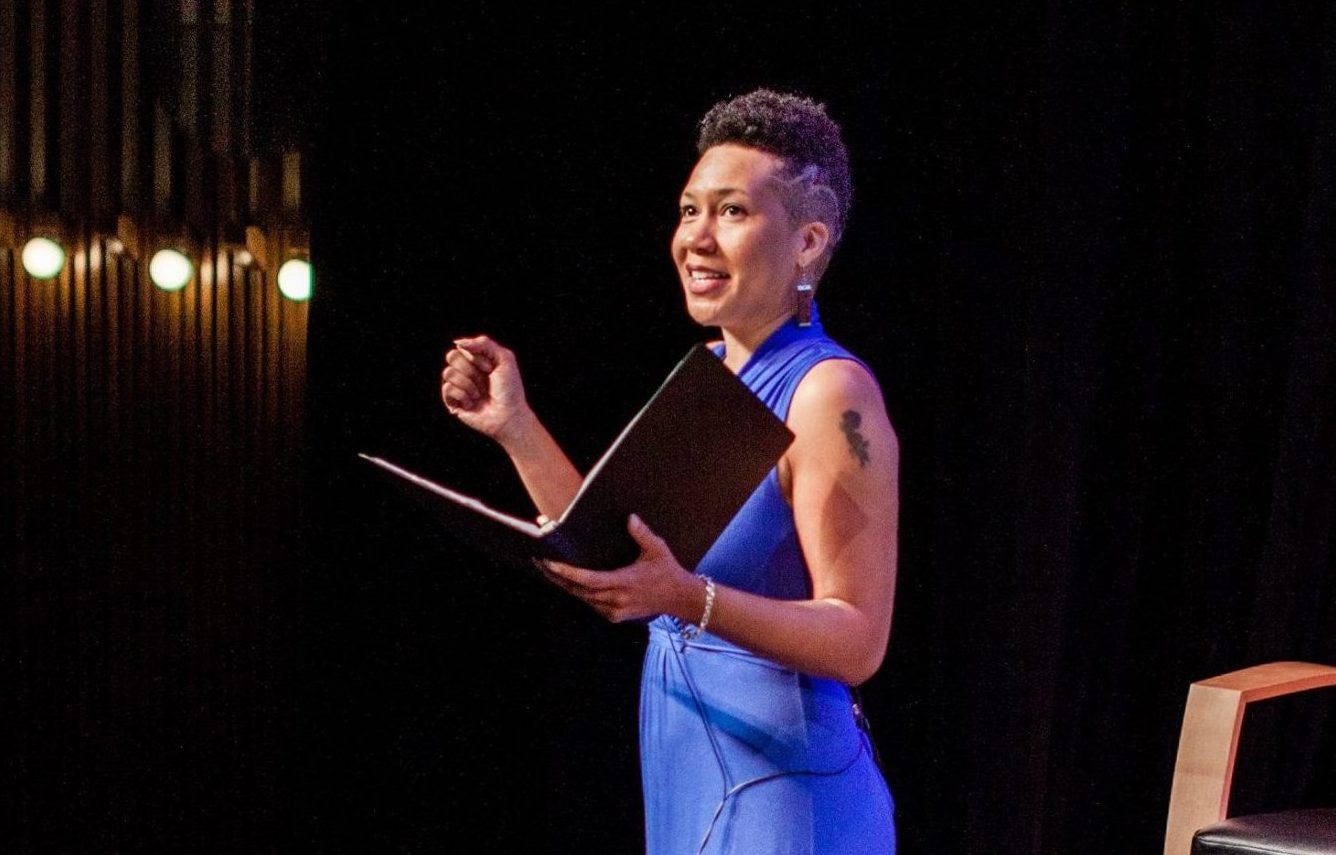In a new “Humanities Connection” segment on WYPR, Tahira Mahdi, a Ph.D. student in human services psychology, examines strategies for how people can evaluate the impact of the arts and humanities on a daily basis.
“The arts and humanities are scholarly fields that study how humans document and process the complexity of the human experience,” she explains in the segment that aired August 11.
Mahdi says that scholars and community workers are often challenged to assess and evaluate the impact of arts and humanities projects on communities and programs through quantitative evidence, but she offered strategies to achieve this through surveys and keeping records of attendance at events. She notes that arts and humanities are not inherently academic pursuits and by definition create change every day, perhaps more effectively measured through qualitative means.
“Qualitative research goes beyond the numbers to provide the depth of the human experience, the how and the why of the impact,” Mahdi explains.
Referencing Lee Boot’s “Art of Transformation” project, Mahdi explores a strategy that examines the less tangible aspects of what makes communities thrive through digital publishing and storytelling as an organizing tool.
“When we think about evaluating the impact of the arts and humanities, we should start by thinking about what life will be like without these everyday studies of ourselves. Some things cannot be quantified, but the impact of the arts and humanities stares us in the face all day, every day,” says Mahdi.
Listen to the complete segment “Evaluating the Arts and Humanities” on the Maryland Humanities Council website.
Image: Tahira Mahdi speaks at the 2015 Imagining America Conference in Baltimore. Photo courtesy Tahira Mahdi.
Tags: CAHSS, Psychology

